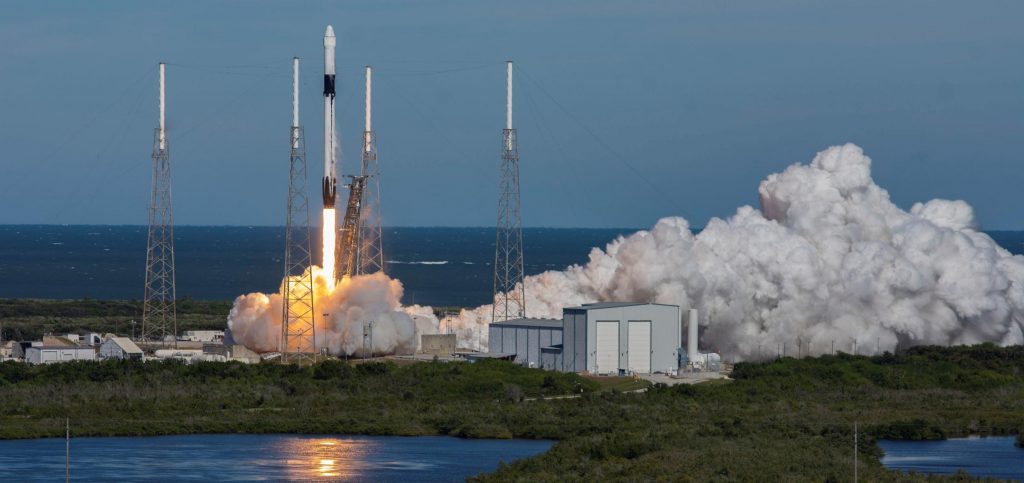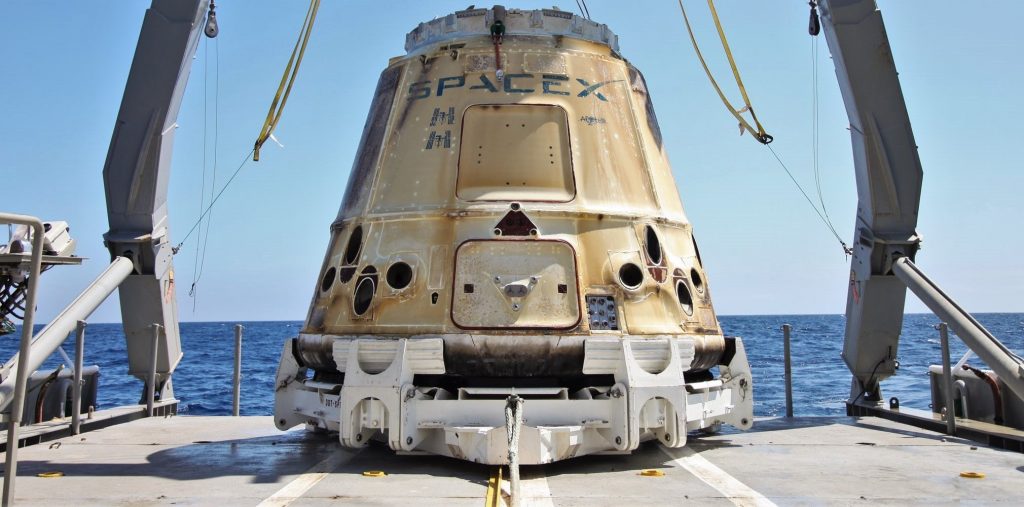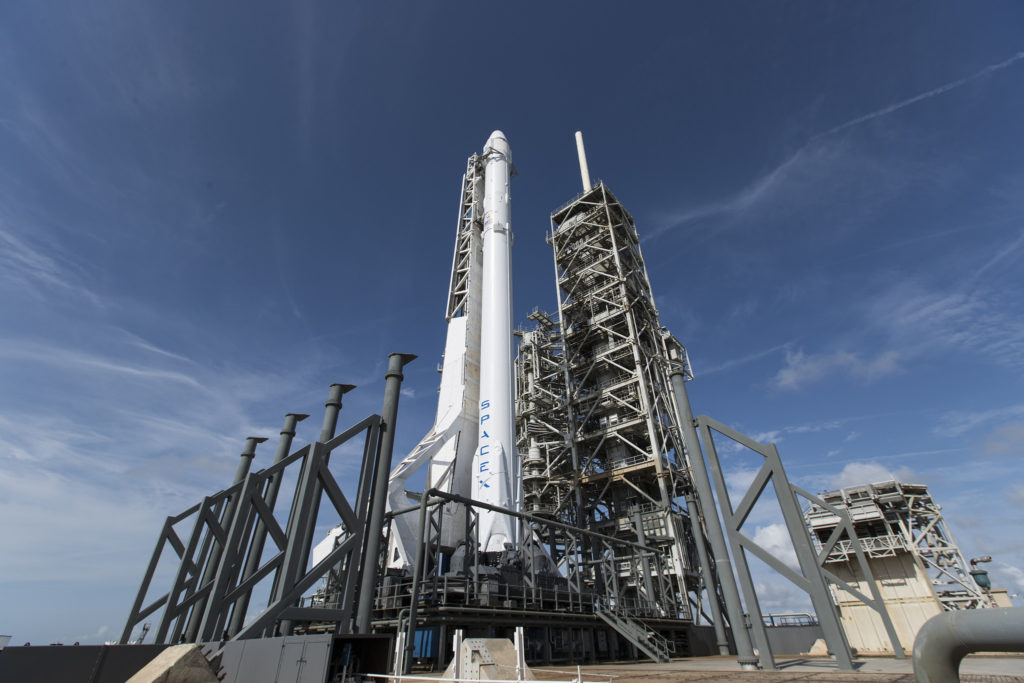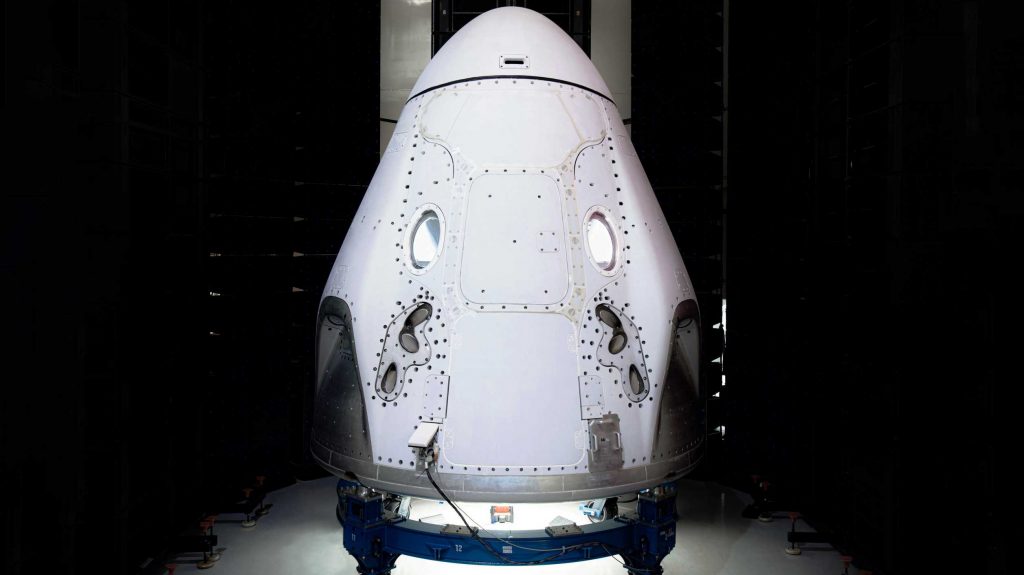The first orbital spacecraft designed and built by SpaceX is set to smash a reusability record on its 20th and final International Space Station (ISS) resupply launch, hopefully ending an exceptional career with yet another noteworthy achievement.
After a rocket-related hardware issue forced a four-day delay, a flight-proven Cargo Dragon spacecraft and Falcon 9 rocket are set to lift off no earlier than (NET) 11:50 pm EST, March 6th (04:50 UTC, March 7th) on NASA’s 20th and final SpaceX Commercial Resupply Services (CRS-20) mission. Although SpaceX’s final CRS1 launch, 20th mission milestone, flight-proven Dragon, and fairly quick Falcon 9 booster turnaround are all significant and exciting in their own ways, the most noteworthy technical aspect of CRS-20 can be found in the Dragon capsule that will soon be perched atop the tip of the rocket.
Shared on March 1st alongside confirmation of a successful Falcon 9 wet dress rehearsal (WDR) and static fire at its Cape Canaveral, Florida Launch Complex 40 (LC-40) pad, SpaceX revealed that Cargo Dragon capsule C112 (C1: Dragon 1; 12: capsule #12) will be supporting CRS-20 as early as this Friday. If all goes according to plan, it will be the spacecraft’s third cargo mission to the ISS since February 2017, becoming the third orbital SpaceX vehicle to do so. Even more significantly, C112 is poised to crush Cargo Dragon’s own previous record for the shortest time between two orbital launches.

Back in June 2017, SpaceX became the first private company in history to successfully reuse an orbital-class spacecraft on its CRS-11 Cargo Dragon mission, itself the first private spacecraft in history to successfully rendezvous with the space station. Since then, all but one CRS mission has featured an orbit-proven Dragon capsule, making CRS-20 the ninth time SpaceX will attempt to launch a spacecraft into orbit for the second (or third) time.

In other words, nearly half of all of SpaceX’s NASA CRS missions have featured flight-proven spacecraft, while several have also launched with flight-proven Falcon 9 boosters. Still, while extremely impressive that SpaceX has managed to convince the risk-averse space agency to fly several dozen tons of critical hardware on flight-proven rockets and spacecraft, Cargo Dragon capsule reuse has always been a comparatively lengthy and complex process.
Back in July 2017, just a month after SpaceX’s first successful Cargo Dragon reuse, CEO Elon Musk offered some insight into the capability’s potential value.
“Musk said he expects the next Dragon reuse and all future reuses to save SpaceX nearly 50% of the cost of manufacturing an entirely new spacecraft. Musk admitted that the first refurbishment of Dragon likely ended up costing as much or more than a new vehicle, but this is to be expected for the first attempt to reuse any sort of space hardware that must survive some form of reentry heating and saltwater immersion.”
Teslarati.com — July 21st, 2017

Ultimately, SpaceX has almost certainly realized Musk’s ambition of cutting the cost of orbital space station resupply missions in half (at least). Scheduled to launch on March 6th, Cargo Dragon capsule C112 last launched in December 2018, reentering Earth’s atmosphere and splashing down on January 13th, 2019. With CRS-20, the capsule could thus crush the previous record – 19 months – by more than 25%. Measured from splashdown to the capsule’s shipment to the launch pad, SpaceX may have spent less than a year refurbishing the Cargo Dragon spacecraft, likely more than a 50% improvement over all past refurbishment operations.

CRS-20 should thus mark a climactic and fitting end to Cargo Dragon 1’s nine-year spaceflight career. While bittersweet that the spacecraft and its many siblings will likely never fly again, Musk has said that Dragon 2 (Crew Dragon) – the spacecraft intended to replace it – is dramatically easier (and thus cheaper) to reuse than Dragon 1. As such, SpaceX should have no issue continuing its trend of lowering the cost of access to space after it begins space station cargo deliveries under its CRS2 NASA contract later this year.
Check out Teslarati’s newsletters for prompt updates, on-the-ground perspectives, and unique glimpses of SpaceX’s rocket launch and recovery processes.

(adsbygoogle = window.adsbygoogle || []).push({});
<!–
–>
var disqus_shortname = «teslarati»;
var disqus_title = «SpaceX's first orbital spacecraft set to smash reusability record on last launch»;
var disqus_url = «https://www.teslarati.com/spacex-first-orbital-spacecraft-reusability-record/»;
var disqus_identifier = «teslarati-131743»;

